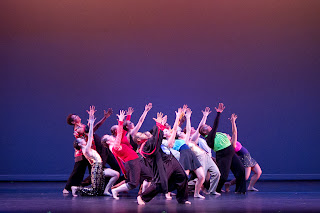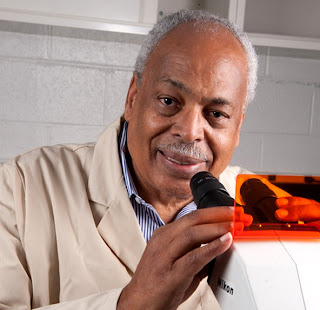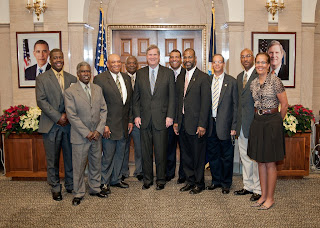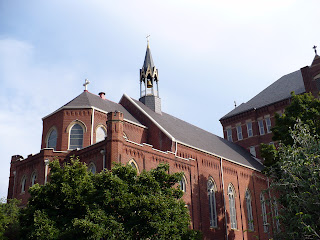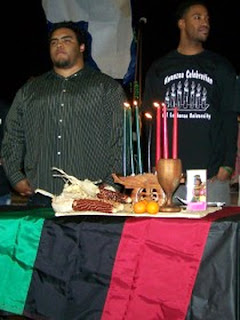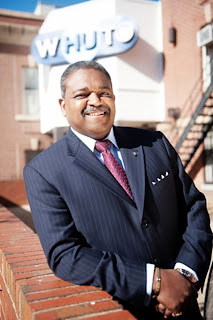One Year Later, Hill District Residents Living Healthier by Working with DU Center for Pharmacy Services.
This December will mark the first year anniversary of Duquesne University’s Center for Pharmacy Services in Pittsburgh’s Hill District, a historic African-American community working to restore its vibrancy. In its first 10 months of operation, the pharmacy has served more than 1,280 patients.
“The day they opened up, I was there,” says Barbara Strothers, superintendent of Hope Square, a retail and commercial building across Centre Avenue from the pharmacy. “This truly was the best thing that happened in the Hill in a long time, and I tell everybody.”
Strothers, as many of the pharmacy’s patients, has the chronic conditions of diabetes and high blood pressure.
But their health outcomes are improving as they take their medications regularly and follow drug guidelines, thanks to the influence of the pharmacy, say representatives of the Hill House Health Care Center across the street. It’s easier for patients to use their medications properly because accessibility and services of the pharmacy center.
The pharmacy is conveniently located in the neighborhood, said Dara Moore, Hill House Health Center nurse manager. It’s within walking distance of nearly 850 senior citizens and across the street from the medical practice—and offers free delivery. That eliminates the need for patients to get rides or take buses to pharmacies farther away.
The pharmacy also helps patients to find the most affordable options, said Kim Spruce, Hill House Health Center outreach worker. In a neighborhood with a poverty rate three times the county average, that’s a critical piece to having patients take their medications as scheduled.
About 20 percent cannot afford to pay for their medications, but the pharmacy provides services regardless of ability to pay, said Terri Kroh, director of Duquesne’s Center for Pharmacy Services. Then expense is no longer a reason to stop a medication.
“They try to find a way to lower your costs so your bills won’t be too high,” said Strothers, whose payment for diabetes medication dropped from $25 to $5 with the help of the pharmacy.
Through private, cutting-edge medication therapy management, patients discuss the drugs they are taking, possible side effects and interactions; this counseling is routinely offered before the medications are in the patients’ hands and is provided for every new prescription—and the knowledge is one more plus in helping patients to comply with the medication schedules.
The pharmacy, which is more like a doctor’s office than a typical retail operation selling greeting cards and bags of snacks, also offers a battery of free health screenings, including blood pressure, diabetes, cholesterol and body mass index, and pharmacy expertise is available through on-call services 24/7. Over-the-counter medications are available for purchase after discussion with a pharmacist, but browsing is not an option.
“The mission of Duquesne University is to serve God by serving students, who then go out and serve. The mission of the pharmacy school is to improve health outcomes for patients and communities,” said Dean J. Douglas Bricker of Duquesne’s Mylan School of Pharmacy. “There are a lot of medically underserved communities in Pittsburgh; this one is our neighbor.”
The Hill District, once one of the most prosperous and influential across the country, declined to the point of losing both its grocery store and its pharmacy by 2000. The Hill has become home to a higher percentage of medically vulnerable populations—children and residents 65 and over—than the rest of the city.
But the community is persisting. The Pittsburgh Central Keystone Innovation Zone, co-founded by Duquesne in 2007, is funneling more than $1 million into local fledgling firms. Two years later, Duquesne announced that its pharmacy school will open and operate a pharmacy in the Hill.
Now, a new grocery store is under construction next door and the brick and steel skeleton of the new YMCA rises along Centre Avenue.
“I couldn’t have asked for anything better—to be alive to see it,” says Strothers, smiling. “We got it all going on, right here.”
Duquesne University, Founded in 1878, Duquesne is consistently ranked among the nation's top Catholic research universities for its award-winning faculty and tradition of academic excellence. The University is nationally ranked by U.S. News and World Report and the Princeton Review for its rich academic programs in 10 schools of study for 10,000-plus graduate and undergraduate students, and by the Washington Monthly for service and contributing to students’ social mobility. Duquesne is a member of the U.S. President’s Higher Education Community Service Honor Roll with Distinction for its contributions to Pittsburgh and communities around the globe. The U.S. Environmental Protection Agency and the Princeton Review’s Guide to Green Colleges acknowledge Duquesne’s commitment to sustainability.
Contact Public Affairs: Duquesne University: Office of Public Affairs, 600 Forbes Avenue, Pittsburgh, PA 15282. 412.396.6050. 412.396.5779 fax Office Hours: 8:30 a.m. to 4:30 p.m.
Bridget Fare, Assistant Vice President for Public Affairs, 412.396.6052, 412.370.9692 (cell) fareb@duq.edu















